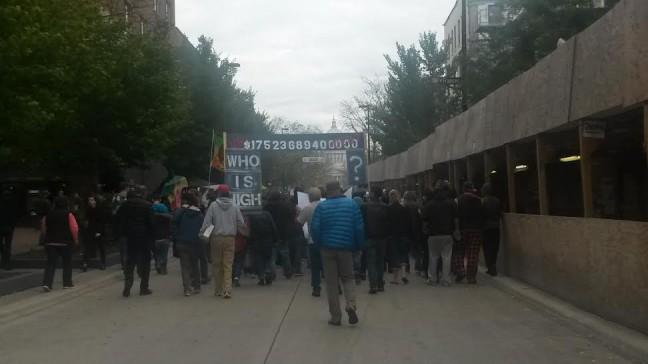Madison’s new police chief bluntly came out in support of marijuana legalization Sept. 22, highlighting the disparity in numbers of arrests between white and black citizens. With the support of legalization sweeping a nationwide majority of 58 percent, according to a nationwide poll by Gallup, the masses of this democratic nation-state have voiced their opinion. But will action follow suit?
For the past 2o years, statistics have illustrated the inefficiencies of policies against marijuana. According to a study released by American Civil Liberties Union entitled “The Consequences and Costs of Marijuana Prohibition,” the illegalization of marijuana, coupled and encouraged with the “War On Drugs,” has done more societal harm than it has good in terms of the welfare of citizens. Increased arrests of minorities in lower socioeconomic zones, gaps in ratios of arrests between small and large possessions, useless tactics and a lack of results have all become staples holding together the lackluster effort to kick America off a mildly inhibiting habit. Marijuana kingpins aren’t filling our jail cells; African-American males with small amounts of marijuana are.
The majority of Americans cannot push the agenda to Congress fast enough. The societal damage caused by marijuana prohibition leaves families with bills, empty seats at dinner and disdain toward law enforcement due to wrongful persecution of minor offenders. That the majority of Americans support legalization does not reflect the scope of damage being done to American livelihood and national well-being. Not enough Americans are aware of the real scope of harm the War On Drugs has on millions of Americans. Furthermore, if informing your peers wasn’t hard enough, the ears of legislators seem to be sewn shut to the sweeping majorities by which they are meant to represent.
The democratic process of legislation is one filled with paperwork and compromise and the average American has little to say in terms of change. We can stand on all the soapboxes we want and preach day and night, but there is little to act upon to remove marijuana from the Controlled Substances Act, which groups it with cocaine and heroin.
So where will our voice be found? With a slight majority and a significant opposing force, although finally changing hands, it will not be a major position taken by lawmakers and representatives. At this point in time, the political process will have little support in taking up such an issue that is deeply embedded in the War On Drugs. So politics is out until a sweeping majority defines legalization as a pressing issue on par with war and poverty.
It is from acknowledgement of law enforcement of the failed efforts of marijuana prohibition that we will find our voice. By relying on the conflict of interests between law and law enforcers we will see a more direct approach to the problem. We must rely on the collective voices of police chiefs across the nation to voice the opinion and statistics the citizens have been pushing for the last 20 years.
In a government based on checks and balances, it is time for the judicial branch to perform obligatory checks on the legislative branch. The issue has only been brought forward to the Supreme Court in the form of traveling with medical marijuana between states.
Hopefully over the course of the next 10 years, the public and Legislatures alike can realize that this is not about allowing hippies to smoke dope and sing songs. Rather, it is an issue that connects directly to the underlying issues of high incarceration rates, race discrimination, a failed war and code of ethics. The sooner we reverse these effects, the better off as a society we will become.
Alex Mohney ([email protected]














